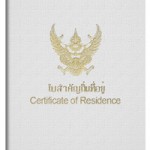Category: Business in Thailand
New Seven-Year Plan at the BOI
The Board of Investment promotes certain investments to respond to current and future economic needs of Thailand. The Thai Board of Investment has recently approved a new seven year master plan. The new master plan is to promote inbound value added investments and Thai investment overseas. The new “Seven Year Investment Strategy will run from […]
Proposed Foreign Business Act Amendments in Thailand
The headlines in Thai business news have been dominated recently by the new government’s proposals to reform the Foreign Business Act of 1999. However, rather than to liberalize business, the proposals are expected to make the law even stricter. This has caused much concern in the foreign business community whose members have voiced their opinions […]
Mergers and Acquisitions of Company in Thailand
Mergers and acquisitions are becoming a routine occurrence in developing countries as companies use the process to expedite their growth or gather additional benefits. A recent high profile example was the merger between Burger King and Tim Horton where the smaller Canadian Tim Horton acquired the larger American Burger King in an attempt to qualify […]
ASEAN Economic Community and Thai Labor
The ASEAN Economic Community is coming in 2015. Within the blueprint for the AEC, there is an article called “Free Flow of Labor.” The purpose of this article is to eliminate the barriers of skilled professional workers being employed within the countries of ASEAN. Through a series of negotiations for liberalization over several years, ASEAN […]
The Corporate Veil Under Thai Law
Under Thai law, a company is considered to be a juristic person, meaning that it comes into existence as a result of law. The intention of a company is expressed through a natural person, namely a “Director.” The Director, once appointed by the majority of the shareholders, becomes the representative of the company and is […]
Thai Permanent Residency Category: Investment
There are several options open to foreigners in Thailand who wish to apply for permanent residency status. The first one is based on investment, which consists of two components: presenting proof of investment both before permanent residence is granted and after it is granted. Before the permanent resident status is granted, the applicant must have […]
Presentation to UN Employees Retiring in Thailand
Siam Legal’s managing partner, Kert Stavorn, was invited to speak to a group of United Nations employees Tuesday regarding legal considerations for foreigners retiring in Thailand. He spoke for over one hour concentrating his presentation on the following issues: retirement visas, owning property in Thailand, fund remittance and taxes, estate planning, and investing. On the […]
The Thailand Real Estate Investment and Property Law Forum 2013
Asia Business Connect held the “Thailand Real Estate Investment and Property Law Forum 2013” conference at the Bangkok Convention Center last September 19th to September 20th. Mr. Kert Stavorn, a partner at Siam Legal International, gave a presentation regarding “Contract Strategies and Legal Concerns in Sales/Property Contracts for the Real Estate Business” and also sat […]
Specific Business Tax in Thailand
Businesses in Thailand that provide goods and services are generally subject to the Value Added Tax (VAT), which is an indirect tax and is levied against the value received or receivable from the supply of goods and services. However, certain types of businesses under the Revenue Code are subject to the Specific Business Tax (SBT), […]


















